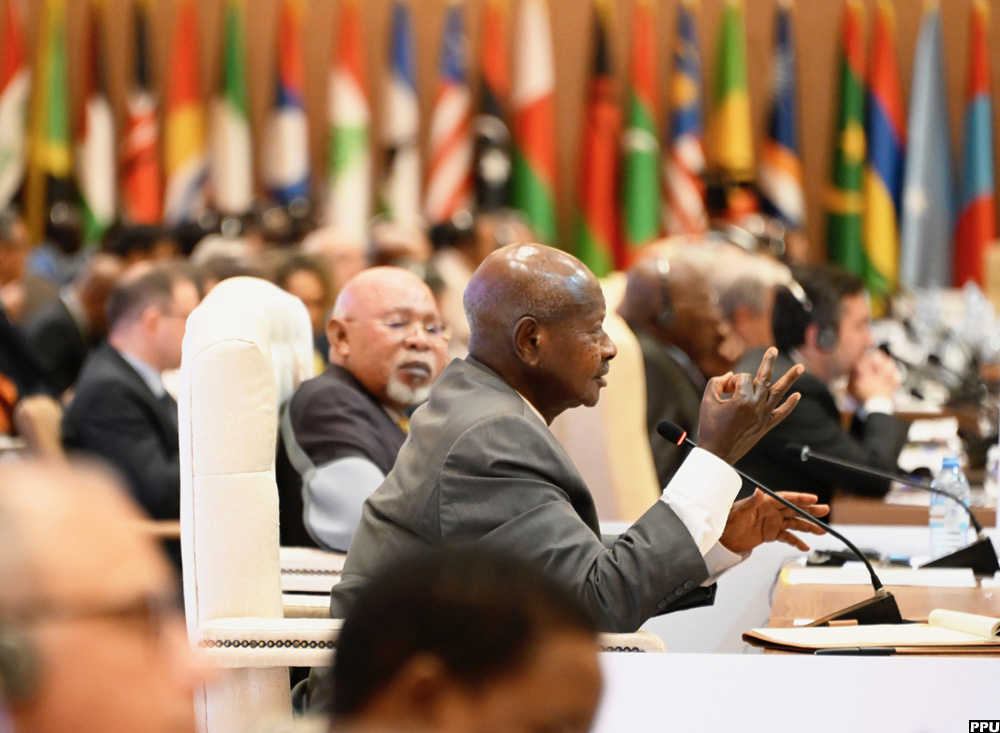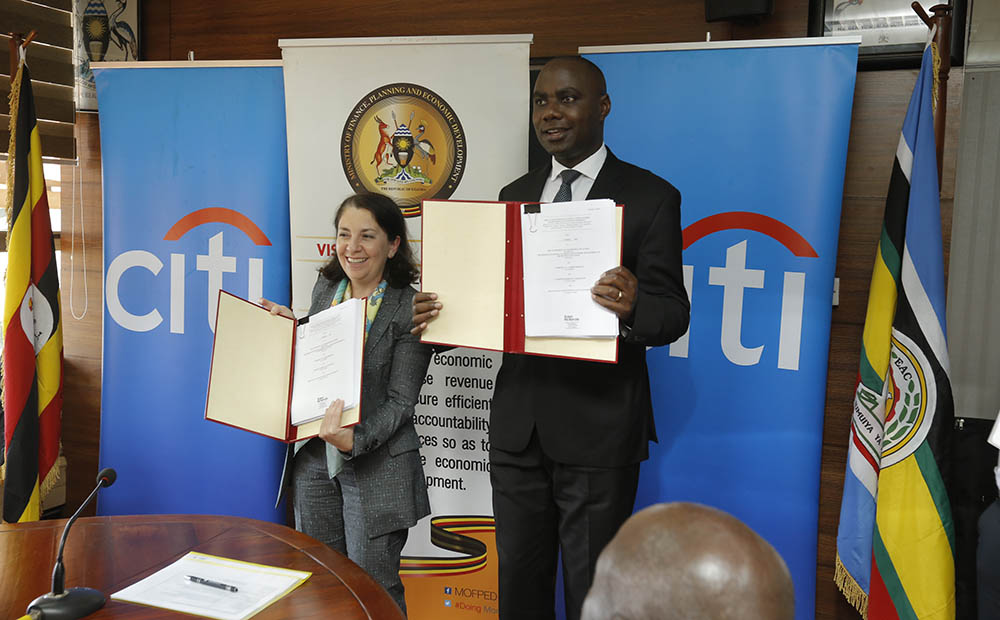President Yoweri Museveni has proposed the inception of an African Investment Bank. The plan was unveiled during a meeting led by Col. Edith Nakalema, head of the State House Investors Protection Unit (SHIPU), who convened government agency heads, key stakeholders from the private sector, and representatives from financial institutions.
The meeting, held at Col. Nakalema’s offices in Nakasero-Kampala, aimed to discuss the potential establishment of the African Investment Bank as a pivotal step towards addressing the financing gaps prevalent in large-scale projects such as roads, railways, power infrastructure, as well as Small and Medium Enterprises (SMEs) and other critical sectors. Lack of access to affordable capital has been a persistent challenge hindering growth and development not only in Uganda but across the African continent.
President Museveni, driven by his longstanding vision of a united East Africa and ultimately a united Africa, views the establishment of an indigenous patient capital and cross-border African Investment Bank as a viable solution. This form of capital, according to his vision, would be instrumental in supporting projects and enterprises requiring time to mature and generate sustainable returns.
Col. Nakalema, tasked by President Museveni to coordinate the engagement, emphasized the transformative potential of the African Investment Bank in propelling Uganda’s economic fortunes to match those of established Asian economic giants such as China, Singapore, and Malaysia.
Key stakeholders present at the meeting included officials from the National Planning Authority, the National Social Security Fund (NSSF), the Bank of Uganda, the Financial Intelligence Authority, and other relevant bodies. Their collective input and support are deemed crucial for the successful realization of President Museveni’s vision.
Prof. Pamela Mbabazi, chair of the National Planning Authority, underscored the importance of patient capital in driving sustainable growth, particularly emphasizing its role in unlocking opportunities for transformative projects like the Standard Gauge Railway.
Patrick Ayota, Managing Director of NSSF, highlighted the timeliness of the initiative, especially considering the challenges posed by international lenders who often attach conditions to their capital. He cited the example of the recent controversy surrounding the Anti-homosexuality law, which drew threats from international financiers.
Officials from the Bank of Uganda and the Financial Intelligence Authority expressed their interest and support for the initiative, recognizing its potential to revolutionize Africa’s investment landscape.
Former Minister Prof. Tarsis Kabwegyere echoed the sentiment, emphasizing the necessity of countering neo-colonial tendencies in business financing. He stressed the need for indigenous patient capital focused on long-term gains rather than short-term profits.
Dr. Beenunula Eyenunula, CEO of TRAVACO and a key consultant behind the project, outlined the proposed framework for the African Investment Bank. The initiative involves the creation of African Investment Holding Ltd (AIHL), which will lead to the establishment of the bank. Through asset management practices and Private Placement Programs, AIHL aims to mobilize capital and generate cash flow proceeds within a relatively short timeframe.
Private Placement Programs, often known as “High Yield Investment Programs,” are financial instruments utilized for investment purposes. These programs, typically restricted to qualified investors, involve the purchase or sale of bank financial instruments with the aim of generating profits for both investors and humanitarian causes.
While the specifics of the African Investment Bank are still being developed, the proposal signifies a significant step towards fostering economic unity and self-reliance across Africa.




















